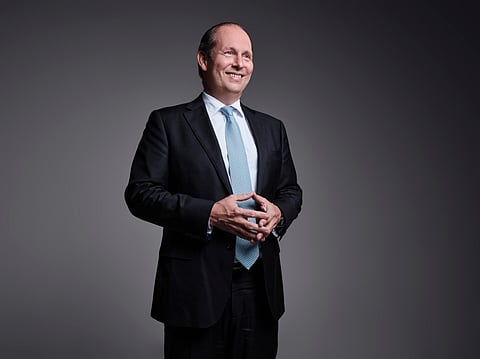Dubai’s Jumeirah targets Europe, US for new hotels, says new CEO
Dubai hospitality giant currently operates 30 properties, plans major push into new market

Dubai: Dubai’s hospitality giant Jumeirah will be laser-focused on portfolio diversification this year, with plans to expand in Europe, Asia, and the US. All this while strengthening its presence in Dubai and Saudi Arabia.
The super-luxury hotel operator will open Jumeirah Marsa Al Arab in Dubai sometime this year, which will also mark the debut for the company’s new visual brand identity.
Last year was also a busy one for Jumeirah - the group launched its new brand identity, opened its first hotel in Saudi Arabia, unveiled ‘reimagined’ villas in Dubai and Bali, and made its entry into Africa with an exclusive island and a private safari reserve.
Plus, Jumeirah marked the 25th anniversary of the iconic Burj Al Arab, made key senior appointments, and continued to innovate in luxury hospitality.
International expansion
“We currently manage a portfolio of 30 hotels, and we have ambitious plans to double our portfolio by 2030, and explore expansion opportunities in Europe, Asia, and the US,” said Thomas Meier, the newly appointed CEO. (In February last year, he was named interim CEO.)
“In Europe, we will add to our existing properties in London, Capri and Mallorca with the addition of Jumeirah Le Richemond, currently under full renovation to open in 2027,” he said.
Le Richemond is a near 150-year-old property in Switzerland, which Jumeirah acquired in 2023. Given Jumeirah's focus on ultra-luxury offerings, whether this ambitious growth strategy involves converting existing hotels rather than constructing new ones is yet to be seen.
“Strategic gateway cities like Geneva are important as they help us build the Jumeirah brand amongst a wider audience –business and leisure – and serve as an entry point to mountain destinations for dual centre experiences,” said Meier.
“The diversification of our portfolio is also something we’re looking at closely – introducing properties with a distinct proposition that offer an enriching guest experience rooted in culture and connection.”
The recently announced Jumeirah Thanda Island in Tanzania and Jumeirah Thanda Safari in South Africa are prime examples. The former comprises an exclusive-use villa in the protected Shungimbili Island Marine Reserve in Tanzania, while Jumeirah Thanda Safari is in one of South Africa’s most luxurious private safari destinations, featuring branded residences and member’s clubs.
Plans for Dubai, Saudi Arabia
Plans are in place to expand in Saudi Arabia. “Following the launch of Jumeirah Jabal Omar Makkah in 2023, our next Saudi Arabia property will be the soon-to-open Jumeirah Red Sea,” the CEO said.
Located on Shura Island, the resort will also include home-grown concepts such as the southern European-inspired SAL, Nikkei Peruvian Kayto and Talise Spa, offering indoor and outdoor treatment rooms, Meier added.
2025 occupancy trends
Over the past three years, occupancy at Jumeirah Burj Al Arab has increased, supported by Dubai’s growing luxury travel market, said Meier. “We remain highly optimistic, as demand for luxury hospitality is on a strong upward trajectory and is projected to grow faster than any other segment in the travel industry,” said Meier.
The group’s Top 5 source markets over the past five years have been Russia, the GCC, the US, the UK and China.
“In terms of shifting trends, we have observed the biggest growth in visitors from China, followed by the UAE, Switzerland and Brazil,” said Meier.
“As we begin 2025, millennials and Gen Z are emerging as key drivers of growth, with these generations projected to account for 80% of luxury spending by 2030,” he said; understanding their preferences is critical. One of the areas they prioritise is experiential travel.
‘Purposeful travel’ – a trend encouraging responsible practices that minimise negative impacts on the environment, culture, and society - is also a growing focus. Examples include the Dubai Turtle Rehabilitation Project at Jumeirah Al Naseem and Jumeirah Burj Al Arab and Project Rhino at Jumeirah Thanda Safari.
Another trend is the rise of multi-generational travel, which typically includes grandparents, parents, and children travelling together. The Jumeirah CEO said this trend is also driving demand for larger accommodations such as branded residences, suites, and villas.
Sign up for the Daily Briefing
Get the latest news and updates straight to your inbox


